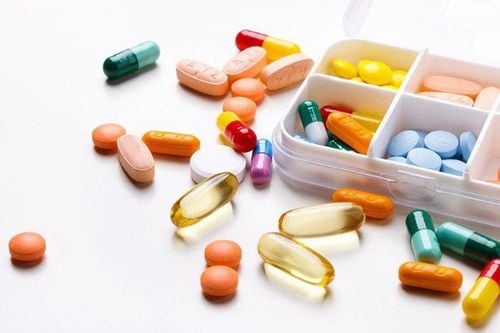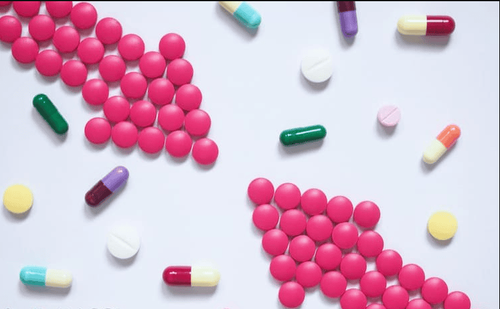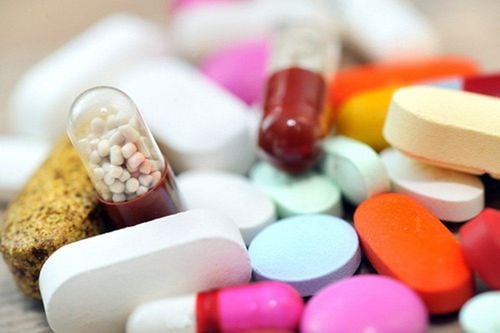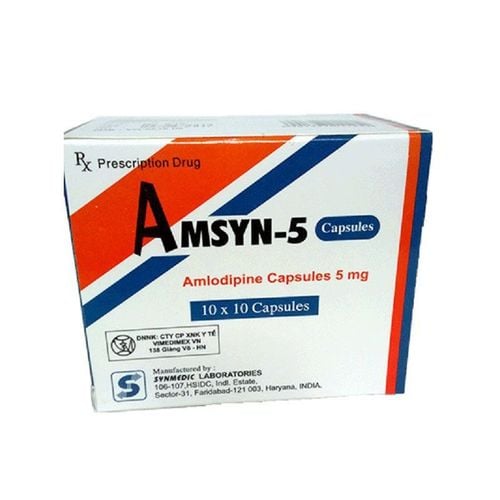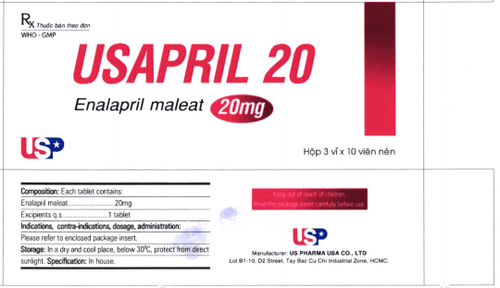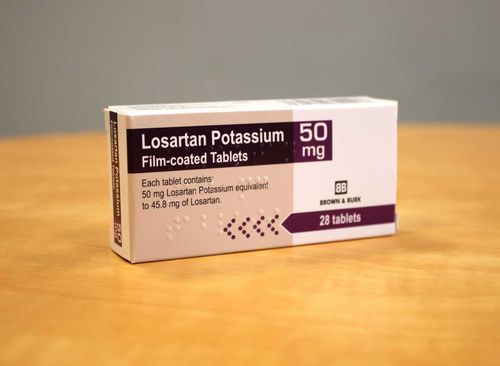This is an automatically translated article.
Interactions between heart medications/high blood pressure medications and alcohol is one of the most common interactions in practice, causing the risk of excessively low blood pressure and many other complications that are dangerous to the health of the patient.
1. Cardiovascular disease and cardiovascular disease drugs
Cardiovascular diseases are conditions related to the health of the heart and the decline in the ability of the vascular system to work. Cardiovascular disease includes many different diseases such as coronary artery disease, cardiomyopathy, arrhythmia, heart failure, angina pectoris, hypertension, ... Cardiovascular diseases often develop silently but to very serious consequences. The most common risk is cardiovascular disease, which causes hardening, narrowing, and blockage of blood vessels leading to interruption or insufficient oxygen supply to the brain and other parts of the body, causing the organs to stop working. lead to serious complications, even death. A worrying thing is that the rate of cardiovascular disease is increasing and showing signs of aging. Currently in Vietnam, an average of 4 adults, 1-2 people are at risk of cardiovascular disease.
Read more: Cardiovascular disease: the leading cause of death
Heart medications are drugs prescribed to prevent or treat cardiovascular diseases. These drugs can also be used to treat non-heart-related conditions such as migraines or muscle tremors. Commonly used drug groups to treat cardiovascular disease include:
Beta blockers: Bisoprolol, Metoprolol, Atenolol,... Alpha receptor blockers: Doxazosin, Prazosin, Terazosin,... Angiotensin-converting enzyme inhibitors: Captopril, Enalapril, Perindopril,... Angiotensin receptor blockers: Losartan, Valsartan,... Group of calcium channel blockers: Amlodipine, Nifedipine, Verapamil, Diltiazem,... Diuretics: Thiazid, Furosemide, Spironolacton,... Group of drugs to treat blood lipids: Atorvastatin, Simvastatin, Rosuvastatin, Fenofibrate,... Nitrate drug group: Nitroglycerin, Isosorbid dinitrate, Isosorbid mononitrate,... MORE: Find understanding beta blockers in the treatment of cardiovascular disease
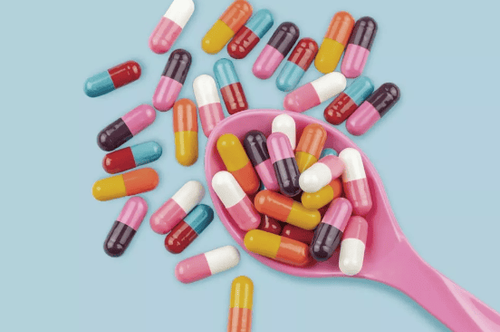
Thuốc chữa bệnh tim có vai trò điều trị bệnh lý tim mạch
2. Interactions between heart medications/high blood pressure medications and alcohol
With the current situation of cardiovascular disease increasing, the use of heart disease drugs, especially high blood pressure drugs, is increasingly popular. In order to use drugs to treat cardiovascular disease safely and effectively, patients need to pay attention to a number of possible dangerous interactions, one of which is the interaction between cardiovascular drugs / blood drugs. high pressure and alcohol.
A study conducted in the US from 1999-2020, among about 17,000 people who drank alcohol, cardiovascular drugs had the highest rate of interaction with alcohol (accounting for about 24%). Among the cardiovascular drugs studied, the drugs for high blood pressure accounted for the largest proportion.
Drinking alcohol can cause low blood pressure in some patients. Theoretically, the use of alcohol together with antihypertensive drugs can make the antihypertensive effect stronger, leading to symptoms of excessive hypotension such as dizziness, lightheadedness, lightheadedness. dizziness, rapid breathing, drowsiness, nausea, fainting, falls,...
Risk of orthostatic hypotension when the patient stands up from a sitting or lying position usually occurs when the patient starts treatment with vasodilators or alpha blockers. This risk increases when patients use these drugs together with alcohol. Orthostatic hypotension can lead to injury and falls, which is especially worrisome in elderly patients.
Besides, people who drink alcohol for a long time are at risk of liver damage (such as cirrhosis). The liver is responsible for breaking down drugs for excretion out of the body. When the liver is damaged, the process of breaking down the drug is reduced, the concentration of the drug in the body will be higher, leading to more serious side effects.
MORE: Using vasodilators in the treatment of cardiovascular disease, blood pressure

Uống rượu trong quá trình sử dụng thuốc điều trị bệnh sẽ làm giảm hiệu quả của thuốc
3. Certain cardiovascular/hypertension medications have a high risk of interacting with alcohol
Some of the cardiovascular drugs/hypertension medications that have a high risk of interacting with alcohol are:
Alpha blockers (Doxazosin, Prazosin, Terazosin, Clonidine) interact with alcohol and can lead to too low blood pressure. levels, dizziness, drowsiness, increased risk of falls. Nitroglycerin and Isosorbide are vasodilators and antianginal agents used to help prevent chest pain and treat angina. Concomitant use of these drugs with alcohol may cause excessive sedation and hypotension. Beta-blockers such as Atenolol, Bisoprolol, Metoprolol, ... when used together with alcohol will increase the risk of hypotension with symptoms such as changes in pulse or heart rate, headache, dizziness, lightheadedness , faint. This phenomenon usually occurs at the beginning of treatment or when the dose is changed. To avoid interactions between heart medications/high blood pressure medications and alcohol, patients should avoid alcohol while on medication. Also stop drinking alcohol at least a day before using cardiovascular drugs. Patients should immediately notify their doctor or seek medical help if they accidentally use alcohol together with cardiovascular drugs and develop symptoms such as headache, dizziness, fatigue, nausea, and drowsiness. , faint,...
Please dial HOTLINE for more information or register for an appointment HERE. Download MyVinmec app to make appointments faster and to manage your bookings easily.
Reference source: drugs.com




